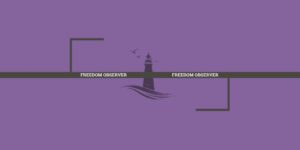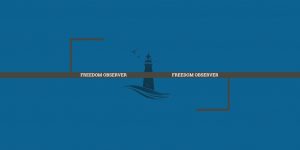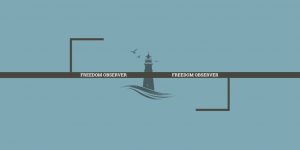
From Editor-in-Chief
While Turkey was trying to heal the wounds of the February 6 earthquake, it also witnessed new political developments that affected the balance between the government and the opposition on the eve of the presidential and parliamentary elections. Meanwhile, the government continues to respond to criticisms leveled at its negligence and failure to cope with the devastation and suffering caused by the earthquake. As detailed below, the government imposed new bans aimed at destroying the last remnants of the already severely restricted freedom of expression.
The aforementioned development, which could affect the political balances on the eve of the elections, came from the İYİ Party leader Meral Akşener, right after the opposition alliance (Table for Six) announced that they had determined the presidential candidate -which is considered to be CHP Chairman Kemal Kılıçdaroğlu. Akşener is trying to get one of the Istanbul or Ankara Metropolitan Mayors to become the opposition presidential candidate in the hope that she will facilitate her goal of becoming the prime minister in the promised parliamentary system.
Since Akşener has no chance to realize this goal after her exit from the Table for Six, she will have to look for a new strategy that will bring her and her party to an advantage in the coming weeks. Although it is not clear for now how this move of the İYİ Party will affect the general political landscape and the balance between the ruling bloc and the opposition, it can be predicted that Turkish politics is open for new developments in the coming days.
Meanwhile, the bans on some religious publications, which are among the government’s pressures on freedom of expression mentioned at the beginning, have also led to new doubts about the nature of the regime in Turkey. As a matter of fact, upon the request of the Presidency of Religious Affairs (DİB), the prevention and seizure of the translation of the Qur’an written by a theologian on the grounds that it violates the basic principles of the religion of Islam is a heavy pressure on freedom of expression, as well as a constitutional violation of the Republic of Turkey. This move by the government also contradicts the principle of secularism. Moreover, it would not be surprising to encounter such prohibitions in the future as long as this legislation remains in force.
We learned from this last incident that the AKP government, by making an addition to the founding Law of the DIB with a decree in 2018, granted this institution a monopolistic authority to determine the meaning and interpretation of the Qur’an. This situation, in one aspect, means that Islam has become almost the established religion, and in another aspect, the Presidency of Religious Affairs has been given a church-like status.
While all of this is going on, the avalanche of problems caused by the AKP government that have deepened and led to a crisis of political legitimacy remains on the agenda. These include the economic crisis that is racing to the bottom, severe degradation of the law, justice, and fundamental freedoms, and the state’s – and the government – maintaining its security-oriented approach to the Kurdish problem. All these problems together with the DİB’s monopoly over the interpretation of Islam that is in clear violation of secularism and human rights, and those related to the reconstruction and urban transformation caused by the earthquake, await the new government and parliament that will be formed after the elections.
Stay tuned, and see you in the next issue.
* Prof. Dr. Mustafa Erdoğan
Freedom of Expression Under Attack
The criticisms regarding the lack of coordination in the search and rescue efforts and the delivery of aid, especially in the first days after the earthquake that took place on February 6 seem to disturb the government. Following the “we note”[1] statements of various government members, a series of measures were taken to silence dissident and critical voices.
First, as search and rescue efforts continue on the third day of the earthquake and many people call for help via Twitter messages from under the rubble, the Information Technologies and Communications Authority (BTK) has narrowed the bandwidth of TikTok and Twitter.[2] This measure, which could not be understood on which legal regulation it was based on, was lifted due to the harsh public reaction. Officials announced that constructive talks were held with Twitter management.[3]
Secondly, those who shared about the earthquake on social media began to be detained from the first days. In this context, academic and journalist Özgün Emre Koç was taken into custody on 8 February and released after one night, after his statements about the late participation of soldiers in search and rescue efforts.[4] In the following period, many scientists, journalists, and ordinary citizens were detained after their earthquake posts were reflected in the media.[5]
Thirdly, it was decided to block access/remove content about many internet domain names and URLs, especially Ekşi Sözlük. It was stated that access to the Ekşi Sözlük was blocked by the BTK at the request of the Presidency in accordance with Article 8/A of Law No. 5651.[6] While this decision was approved by the Ankara 4th Criminal Court of Peace, the concrete content that caused the platform to be blocked from the access was not disclosed. Again, upon the request of the General Directorate of Security, more than 300 URL addresses, as well as the website of Avesta Kitap, which publishes books in Kurdish, and the website of Rudaw TV, were blocked. It was reported that the access bans on Avesta and Rudaw were lifted upon later objections.[7] Fourth, many opposition television channels were given screen blackouts and fines by RTÜK due to earthquake broadcasts. It was stated that while Halk TV and Tele 1 television channels were fined 5% and suspended programs 5 times, Fox TV was fined 3% each for its Orta Sayfa program and Halk TV for its Halk Meydanı program.[8] Reasons behind these penalties were given as that some of the broadcasts incited the people to hatred and enmity, were against the indivisible integrity of the country, or prevented the public from forming an impartial opinion.
Fifth, some football matches were offered to be played without spectators due to slogans calling for the government to resign on the grounds that the government failed to respond to the earthquake.[9] Many politicians, especially MHP leader Bahçeli, announced that they resigned from their club membership after the spectators of Fenerbahçe and then Beşiktaş chanted slogans demanding the resignation of the government.[10] On the other hand, it was stated that Fenerbahçe guest team spectators will not be allowed in the Kayserispor-Fenerbahçe match to be played on Saturday, March 4, in accordance with the Kayseri Provincial Security Decision.[11] In addition, it was learned that some people who chanted the slogan “the government should resign” were banned from watching the matches because they made “chants containing threats and insults” in accordance with Article 14 of Law No. 6222.[12]
Finally, decisions regarding the confiscation of some books were published. In this context, it was first announced that a “dirty publication” decision was made about the book “Gender of Cherry”, which has been on sale in Turkey since the 1990s.[13] Secondly, it was announced that the book titled ‘Living Qur’an: Turkish Meal-Tesfir’, written by the theologian writer İhsan Eliaçık, was confiscated, upon the request of the Presidency of Religious Affairs, on the grounds that ‘it contains objectionable elements in terms of the basic characteristics of the Religion of Islam’.[14]
Freedom of expression, which is an indispensable element of democracy, requires the free expression of all kinds of ideas and the public authorities’ tolerance against heavy criticism. Practices aimed at silencing the simplest criticisms are against basic constitutional principles and values such as human rights, democracy, and the rule of law.
* Ali Rıza Çoban – Constitutional Lawyer
Upcoming Elections
After two major earthquakes in Kahramanmaraş on February 6, discussions began over mixed when the Presidential Election and the General Elections for the Parliament, which were announced to be held on 14 May, should be held. Shortly after the earthquake, Bülent Arınç, one of the high profiles of AKP’s staff, said in a statement that the elections should be postponed immediately. Although he did not have an active role in the party, this statement of Arınç started the discussions about the postponement of the elections. Erdoğan’s “give me a year” rhetoric has inflamed this debate. There was a concern in the public that the move to postpone the elections would be made by the ruling party based on the assumption that the government would be in a stronger position in the elections as the effects of the earthquake’s destruction are alleviated over time.
However, although pulling the elections forward is rare in presidential systems, it is a very common practice, especially in parliamentary systems. Yet, the postponement of elections has been linked to extraordinary exceptional situations and difficult conditions in democratic systems. According to the constitution, elections can only be postponed under the condition that the country should be at war. Although some jurists interpret the earthquake as a necessity in line with the statement of the Constitutional Court on June 15, 2012, “In the event of a necessity arising from war or any other reason, if the elections cannot be held, the president whose term has expired will continue to serve, even if there is no postponement decision”. We can also say that this broad interpretation will undermine democratic institutions.
As a matter of fact, the opposition parties rightly stated that, in accordance with the constitutional provision that stipulates that elections can only be postponed for up to one year in case of war, such a decision by the government would be unconstitutional and would constitute an anti-constitutional and anti-democratic deviation like a coup. In fact, since the declaration of a state of emergency in the region to cope with the problems caused by the earthquake disaster, there will be no need to postpone the elections anyway, since it is aimed at returning to the normal situation in the earthquake area in a short time. Fortunately, President Erdoğan, in his speech at the group meeting of his party on Tuesday, February 28, confirmed that the elections would be held on the date he had previously announced, by saying “I hope this nation will do what is necessary on May 14”, thus eliminating the concerns about the postponement of the elections. However, if the election date becomes clear as May 14, the President must decide on an early election on March 10 at the latest.
Although we have witnessed that many democratic institutions and practices have been eliminated or weakened by this government in recent years, we have not had any discussions about the postponement of the elections. Although the emergence of these discussions after the earthquake worried the public and opposition parties, we would like to state that we welcome the political consensus that the elections will not be postponed at the end of the day.
* Ömer Faruk Şen – Ph.D. – Missouri University
[1] https://www.cumhuriyet.com.tr/turkiye/son-dakika-rtukten-depremzedenin-sesi-olan-halk-tv-tele-1-ve-foxa-ceza-2054307
[2] https://www.yenicaggazetesi.com.tr/hukumet-istifa-sloganlari-bahceliyi-kizdirdi-634795h.htm
[3] https://www.sozcu.com.tr/2023/gundem/bahceli-bjk-uyeliginden-istifa-etti-7604157/
[4] https://t24.com.tr/haber/kayserispor-fenerbahce-macina-sari-lacivertli-taraftar-stada-alinmayacak,1095066
[5] https://twitter.com/KeremALTIPARMAK/status/1630974361644433418
[6] https://www.resmigazete.gov.tr/ilanlar/eskiilanlar/2023/02/20230221-4-6.pdf ; https://susma24.com/visnenin-cinsiyeti-kitabina-muzir-yayin-karari/
[7] https://twitter.com/rihsaneliacik/status/1628080428916650002
[8] https://www.cumhuriyet.com.tr/siyaset/son-dakika-erdogan-yine-not-etti-kursude-14-mayis-mesaji-verdi-2056508
[9] https://t24.com.tr/yazarlar/fusun-sarp-nebil/twitter-ve-tik-tok-un-bant-genisligi-nasil-ve-neden-daraltildi,38624
[10] https://www.sondakika.com/haber/haber-turkiye-twitter-a-sorumluluklarini-hatirlatti-15619380/
[11] https://www.indyturk.com/node/608331/haber/siyaset-bilimci-%C3%B6zg%C3%BCn-emre-ko%C3%A7-g%C3%B6zalt%C4%B1na-al%C4%B1nd%C4%B1
[12] https://www.gazeteduvar.com.tr/deprem-bilimci-prof-dr-ovgun-ahmet-ercan-gozaltina-alindi-haber-1606062 ; https://artigercek.com/guncel/gazeteci-gokhan-ozbek-hakkinda-gozalti-karari-241022h
[13] https://www.bbc.com/turkce/articles/cx79e19g5pqo
[14] https://t24.com.tr/haber/rudaw-ve-avesta-yayinlari-nin-web-sitelerine-erisim-engeli-getirildi,1093958





